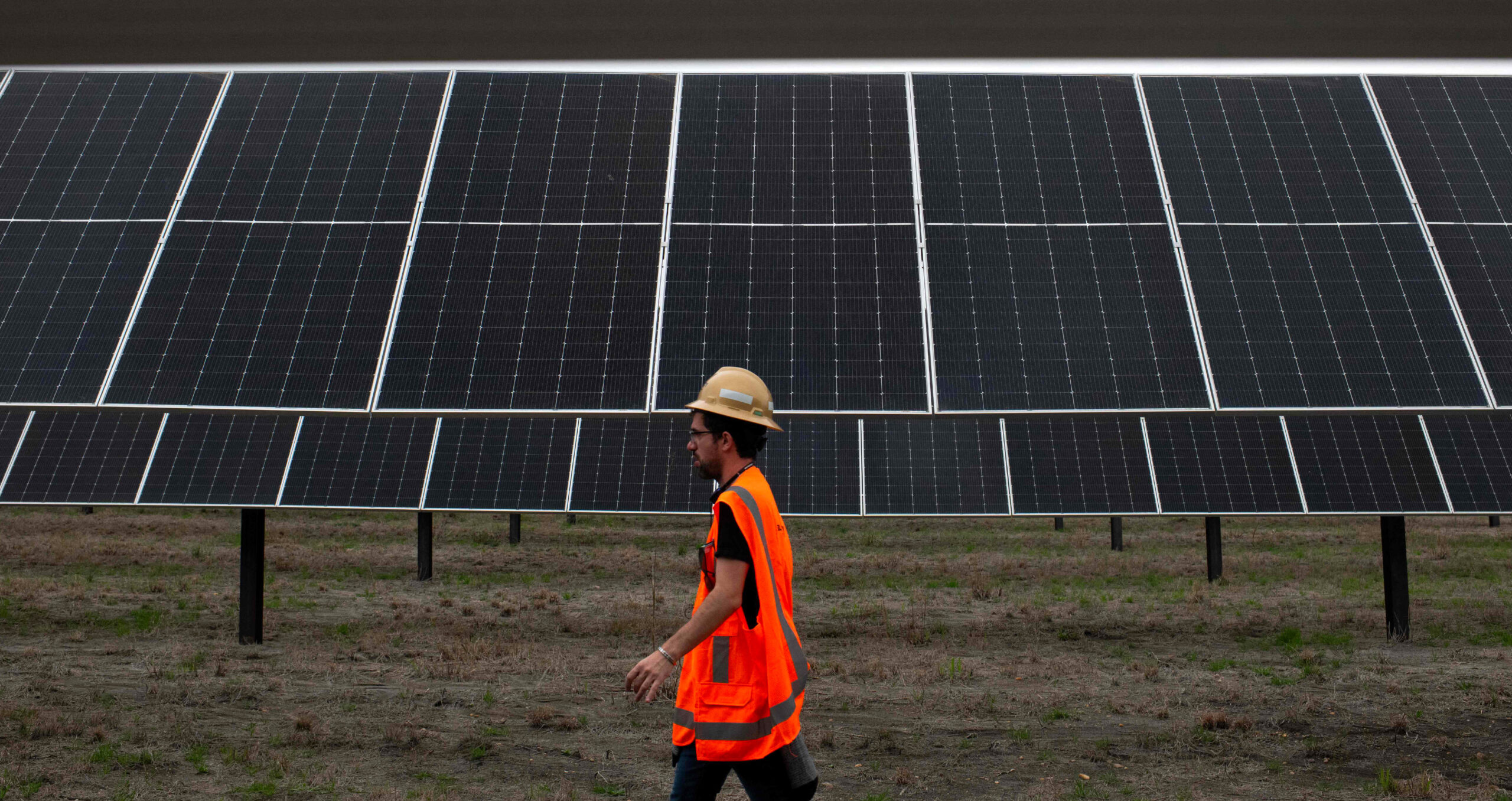
Oil and climate groups align to face down Texas attack on renewables

Texas’s booming wind and solar industries have just survived a legislative assault from landowners, right-wing think-tanks and fossil fuel companies. But the once-monolithic oil and gas lobby is fracturing, putting some industry organisations on the same side as environmental groups.
Lawmakers from Texas – the second-largest state in the US and one of the world’s largest economies in the world – meet for just 140 days every two years, creating a particularly intense legislative process. Representatives file as many bills as they can in this short space of time, and many bills are political statements rather than genuine attempts to pass legislation.
The most recent legislative session, which ended on May 29, saw a multitude of anti-renewable bills. Some could have affected individual wind and solar projects; others, if successful, would have killed the expansion of both power sources across the state.
The latter result would have been a colossal blow for Texas and the US, since no other state comes close in terms of utility-scale wind capacity. Texas accounted for more than a quarter of the country’s wind-generated electricity in 2022, and was second only to California for solar power.
Of all the hostile legislation, Senate Bill 624 was perhaps the worst. It proposed tough new permitting requirements on all wind and solar generation, which would have applied retroactively to existing projects. Essentially, local officials would have been given the power to block the development of all renewable energy projects.
“It would have been a killer for renewables in Texas,” says Olivier Beaufils, market lead (ERCOT) at Aurora Energy Research. “But that was the one bill that the entire industry – energy, manufacturing, chemicals – pushed back against. It never got any sort of support in the House and got very limited support in the Senate.”
Oil and gas companies are not keen to see solar and wind struck down for two main reasons. One is that many major companies, such as Chevron and Exxon, have sustainability commitments. For example, Exxon has said its operations in Texas’s Permian Basin will be net zero by 2030.
“They need wind and solar power in their operations to do that,” says Luke Metzger, executive director at policy and advocacy group Environment Texas. “They’re also huge consumers of electricity.”
In 2022, renewables cut the state’s wholesale electricity market costs by around $11bn, according to analysis firm IdeaSmiths. Legislation that hamstrings wind and solar is likely, therefore, to raise consumer prices, which in turn would hit large industrial operators.
Big oil vs little oil
Originally, the major opponent of renewable energy in Texas was “Big Oil” but nowadays a more apt description would be small and medium oil. Metzger says the most vocal supporters of the anti-renewables legislation were smaller firms, including South Texas Electric Cooperative and fuel refinery Valero.
Michael Jewell, an attorney and advisory board member at the advocacy group Conservative Texans for Energy Innovation, says Shell and other large companies did not testify on an anti-renewables platform during the legislative debates.
“Big oil has environmental goals they’re trying to achieve. From their perspective, having a robust, accessible renewables market can be beneficial,” says Jewell.
However, while small and medium-sized fossil fuel operators with limited diversification often support legislation that harms renewables, they are not necessarily the originators of such bills.
Senate Bill 624 was driven mainly by rich landowners who dislike the visual impact of wind farms, and the increasingly influential conservative think-tank the Texas Public Policy Foundation is a major force behind anti-renewable bills. TPPF does not believe climate change is a threat and opposes any attempt to move the US towards net zero.
Leaked documents show oil and gas majors such as Exxon, as well as many smaller independent producers, have donated to TPPF, and many its executives come from the fossil fuel industry.
Pro-renewables campaigners say it is important to highlight that animosity towards wind and solar comes from a specific section of the oil and gas industry, rather than the industry as a whole.
Metzger says there are clear benefits to demonstrating that big oil companies are some of the biggest customers for wind and solar energy. “Many of the biggest employers in the state are big fans [of renewables],” he says. Business groups can also be valuable allies in opposing attempts to seriously curtail renewable power generation. “If you can get the Texas Oil and Gas Association or others to flex their muscles, they can stop a lot of this from happening,” he adds.
An example of this muscle-flexing concerned a bill that did eventually pass, albeit in an amended form. Senate Bill 7 requires state grid operator ERCOT to create new market programmes. One such, a performance credit mechanism, would pay gas-fired generators more money for being available when the grid is stressed.
There was fierce debate around how much this would cost and by how much it would hike electricity prices. Opposition to the PCM came from a broad church, which included major oil and gas groups, which did not want to be saddled with high electricity prices, and environmental campaigners, which want a phase out of gas.
“The [House committee] chairman made a comment that it’s one of the first times he has had the Texas Oil & Gas Association and the Sierra Club both opposed, and making the same argument,” says Beaufils at Aurora Energy Research, who attended the hearing for Senate Bill 7.
In the end, the House placed a $1bn annual ceiling on the PCM to protect consumers, which gas generators complained is too low to allow the programme to function.
This unusual alliance of environmental campaigners and fossil industry groups in opposing legislation that would harm the growth of wind and solar is important – Jewell at Conservative Texans for Energy Innovation expects anti-renewables groups in other states to adopt similar legislative tactics to the TPPF. But he also expects to see broad bipartisan and business coalitions in those same states defend wind and solar from attack.
Indeed, neighbouring states are becoming more open to renewable power. There are massive wind projects being developed in New Mexico, and Oklahoma – once hostile to wind and solar – is welcoming domestic and international investment in green energy. Louisiana, meanwhile, is looking eagerly at green hydrogen, acknowledging that the technology requires significant renewable capacity.
Furthermore, public support also seems to be growing. “From a bipartisan basis, renewables poll very positively,” says Jewell. “Some of the antagonistic legislation we’ve seen doesn’t seem to be in accordance with [how] the population actually [feels].”
Similar Articles

Farmland investment and ‘green grab’ threatens food security

In Brief: US EPA issues final methane emissions reporting rule; Australia publishes ‘Future gas strategy’


